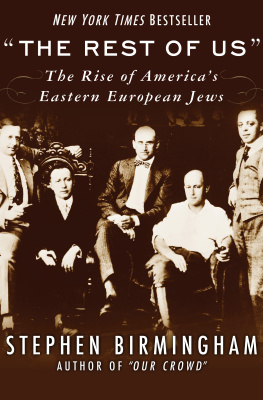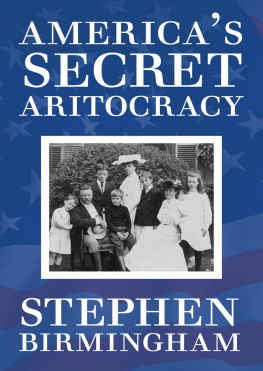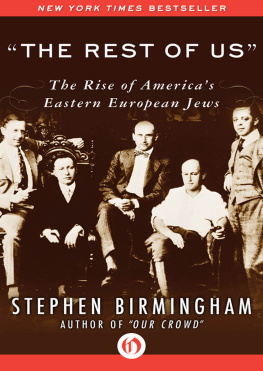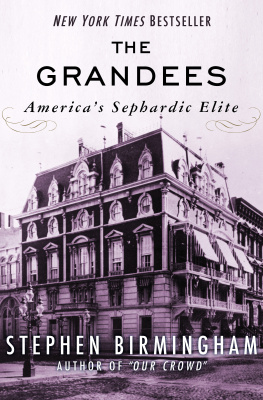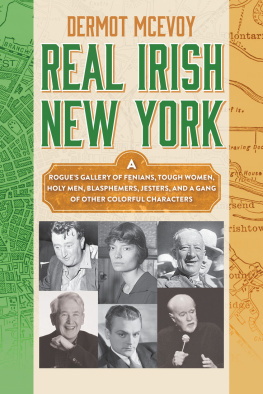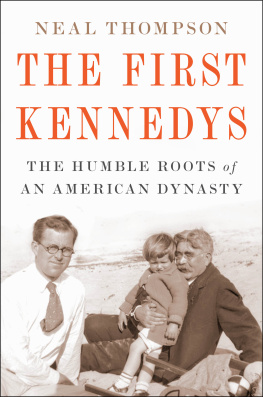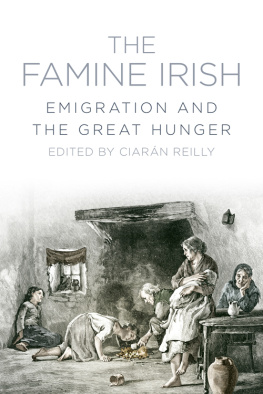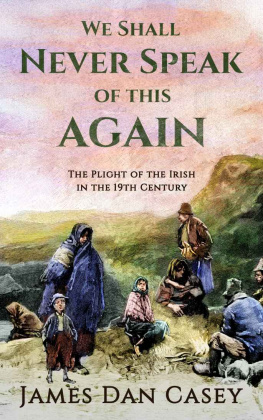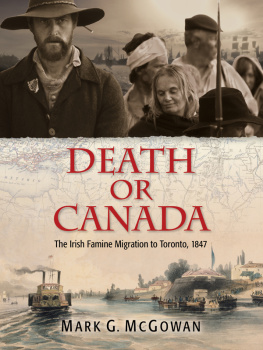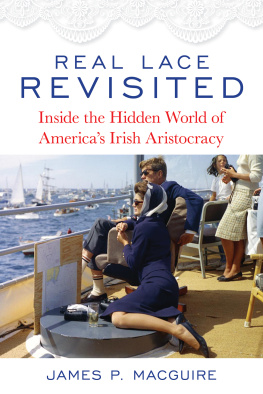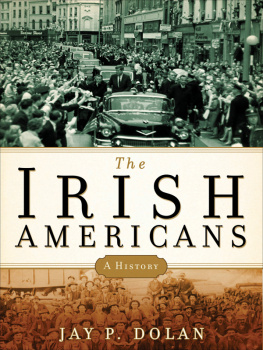PRAISE FOR THE WRITING OF STEPHEN BIRMINGHAM
The Auerbach Will
A New York Times Bestseller
Has the magic word bestseller written all over it Birminghams narrative drive never falters and his characters are utterly convincing. John Barkham Reviews
Delicious secretsscandals, blackmail, affairs, adultery the gossipy Uptown/Downtown milieu Birmingham knows so well. Kirkus Reviews
An engrossing family saga. USA Today
Colorful, riveting, bubbling like champagne. The Philadelphia Inquirer
Poignant and engrossing Has all the ingredients for a bestseller. Publishers Weekly
The Rest of Us
A New York Times Bestseller
Breezy and entertaining, full of gossip and spice! The Washington Post
Rich anecdotal and dramatic material Prime social-vaudeville entertainment. Kirkus Reviews
Wonderful stories All are interesting and many are truly inspirational. The Dallas Morning News
Entertaining from first page to last Those who read it will be better for the experience. Chattanooga Times Free Press
Birmingham writes with a deft pen and insightful researchers eye. The Cincinnati Enquirer
Mixing facts, gossip, and insight The narrative is engaging. Library Journal
Immensely readable Told with a narrative flair certain to win many readers. Publishers Weekly
The Right People
A New York Times Bestseller
Platinum mounted The mind boggles. San Francisco Examiner
To those who say society is dead, Stephen Birmingham offers evidence that it is alive and well. Newsweek
The games some people play manners among the moneyed WASPs of America The best book of its kind. Look
The beautiful people of le beau monde Mrs. Adolf Spreckels with her twenty-five bathrooms Dorothy Spreckels Munns chinchilla bedspread the St. Grottlesex Set of the New England prep schools, sockless in blazers the clubs the social sports love and marriagewhich seem to be the only aspect which might get grubbier. Its all entertaining. Kirkus Reviews
It glitters and sparkles. Youll love The Right People. The Atlanta Journal-Constitution
A fun book about Americas snobocracy Rich in curiosa More entertaining than Our Crowd Stephen Birmingham has done a masterly job. Saturday Review
Take a look at some of his topics: the right prep schools, the coming out party, the social rankings of the various colleges, the Junior League, the ultra-exclusive clubs, the places to live, the places to play, why the rich marry the rich, how they raise their children. This is an inside book. The Washington Star
All the creamy people The taboo delight of a hidden American aristocracy with all its camouflages stripped away. Tom Wolfe, Chicago Sun-Times
The Wrong Kind of Money
Fast and wonderful. Something for everyone. The Cincinnati Enquirer
Dark doings in Manhattan castles, done with juicy excess. A titillating novel that reads like a dream. Stunning. Kirkus Reviews
Birmingham certainly keeps the pages turning. Fans will feel at home. The Baltimore Sun

FOREWORD
I grew up in a small New England city where Irish Catholics, or those of Irish extraction, were not asked to join the country club, and sobeing of that extraction myselfI have long been aware of the strong, and at the same time vulnerable, position of the Irish in American life. But more than my own personal experiences and sentiments have gone into the production of this book, and there are a number of people whom I would like to thank for their assistance, insights, impressions, memories, and materials. Most particularly I am grateful to Mr. John Murray Cuddihy of New York for access to his voluminous data on the Murray-Cuddihy-Bradley-McDonnell family complex, as well as for his own considerable researches on the general topic of the Irish in America. I am also indebted to Mr. Cuddihys wife, Harriet De Haven Cuddihy, for help as well as for hospitality, nor should I overlook the two older Cuddihy children, Heidi and John, whodespite the fact that they have a perfect attendance record at their Episcopalian Sunday school classes at St. Thomasshelped make the many hours I spent in the Cuddihy household researching their Irish Catholic antecedents peaceful and productive.
I am also deeply grateful to Mr. Cuddihys sister, Mary Jane Cuddihy MacGuire of Ste. Agathe, Quebec, for photographs, family recollections, and guidance in both Church and family matters, and I should also thank the Cuddihys mother, Mrs. H. Lester Cuddihy, for her help and support. Mrs. Charlotte McDonnell Harris of New York was of great assistance with McDonnell family anecdotes, and Mr. John F. Murray, Jr. of Wainscott, New York, was similarly helpful in terms of his family, the Murrays.
Because many of the Irish families were large, the list of people who have helped me with this book is long, but there are certain individuals to whom I owe a special word of thanks. I would like to thank Mr. and Mrs. Donald W. Marshall of Bedford Hills, New York; Mrs. Alison Murray of Weston, Connecticut; Mr. Clendenin J. Ryan III of Far Hills, New Jersey; Father Regis Ryan, S.J., Mr. J. Patrick Lannan, Miss Mary Pritchard, Miss Martha Butler, Miss Margaret Thalken, Mrs. Marianne Strong, and Miss Julia McCarthy, all of New York, and the Hon. John D. J. Moore of Dublin who, from the outset, took a lively interest in, and encouraged, this project. I would also like to thank Mr. Joseph T. P. Sullivan, President-General of the American Irish Historical Society, for his interest and help. I am grateful to Mrs. Carol Buckley Learsy of New York for permission to quote from letters and memoranda of her late father, William F. Buckley, Sr.; to Father Robert J. Gannon, S.J., for permission to quote from the diaries and letters of the late Francis Cardinal Spellman; and to Mr. William G. Post of Rye, New York, for permission to quote a letter from his grandmother, Emily Post.
A number of authors proved important sources for this book, including Father Gannon with his biography of Cardinal Spellman; M. R. Werner and John Starr, whose Teapot Dome provided excellent insights into the career of Edward L. Doheny; and L. Clayton Dubois, whose revealing analysis of the Buckley family was published in the New York Times Magazine. Cecil Woodham-Smiths The Great Hunger offers probably the best account of the Irish potato famine, and John Brookss Once in Golconda presents by far the most thorough and accurate version of the rise and fall of Allan A. Ryan.







